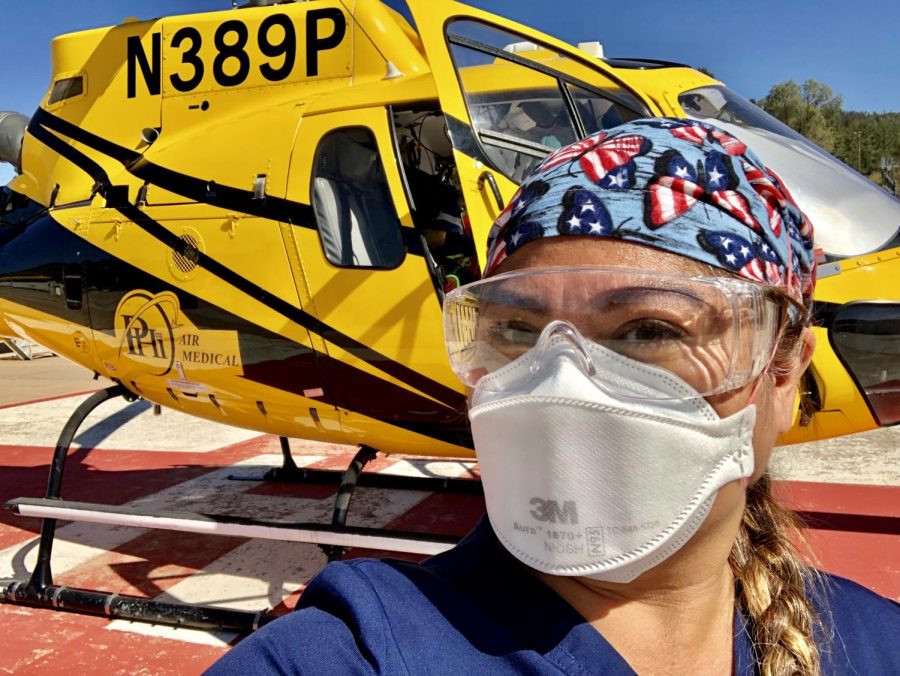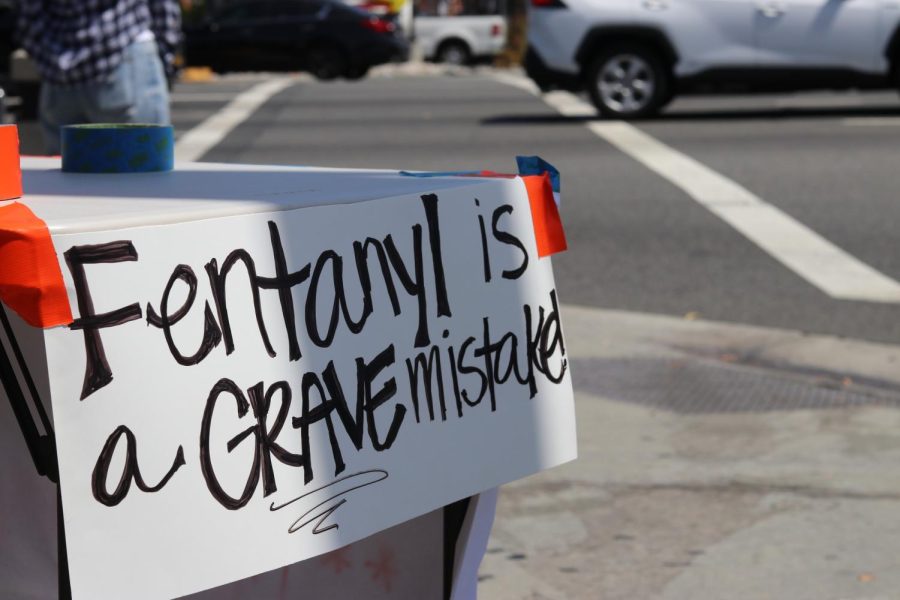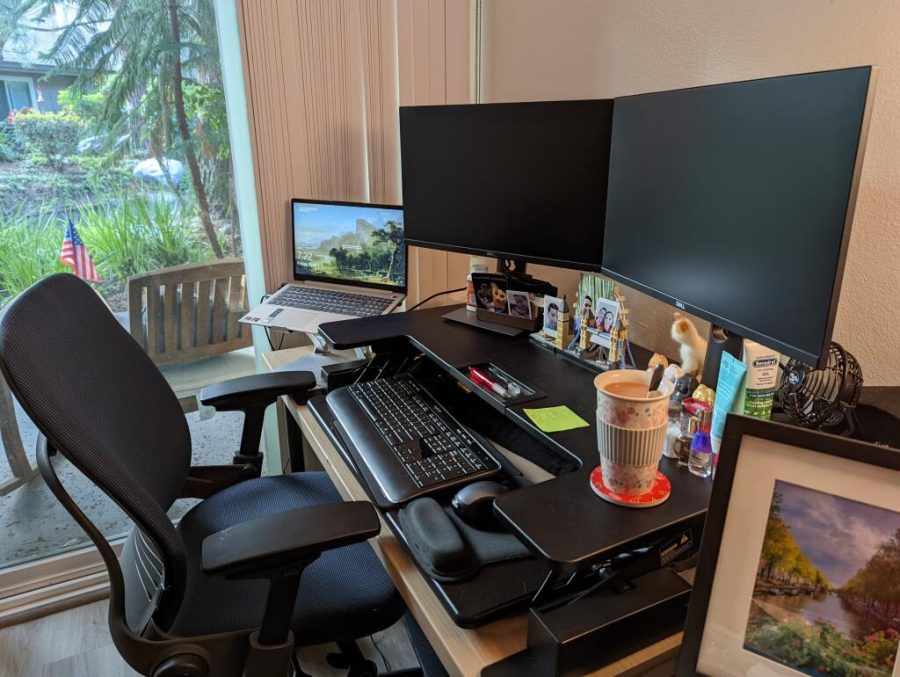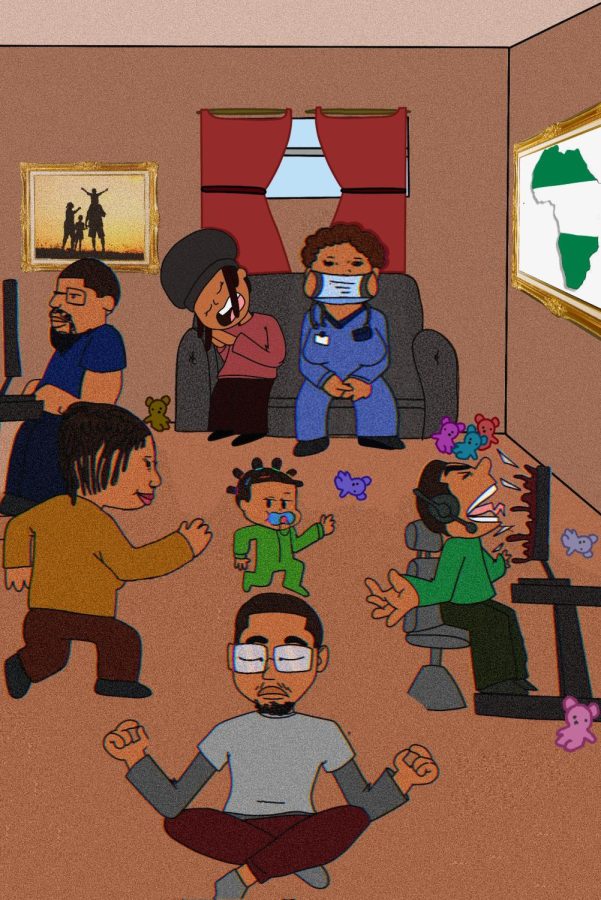The COVID-19 pandemic continues to take an excruciating toll on front line healthcare workers in California.
Nurses on the front lines not only face constant potential COVID-19 exposure but have also experienced a debilitating amount of stress and emotions in the last 11 months.
Ana Valdoria, a registered nurse at Veterans Affairs Long Beach Healthcare System, has worked in the healthcare field for 26 years and says things were very chaotic and stressful when the pandemic first hit.
“It’s very stressful even until now,” Valdoria said.
Valdoria explains the stress they feel when there is a confirmed positive case and they try to trace back whether they were exposed themselves or not.
In addition to the risk exposure, the hospital is seeing an overflow of COVID-19 patients. The hospital had to create a Mobile Medical Hospital, which is made of tents in the parking lot in front of the hospital, to make room for more patients.
As the COVID-19 surge continues, Valdoria says their numbers are going up. She was recently deployed to Arizona to help the Navajo nation with their COVID patients.
There she treated a 31-year-old COVID patient on his birthday. “He could only say three words — not sentences — three words,” Valdoria remembered. “Three words and he was done and completely out of breath.”
A message for those skeptics who question the virus, Valdoria tells them, “You really have to see it for yourself to even say anything. To be able to judge this whole situation.”
As a mother, Valdoria also faces the burden of taking the role of a teacher with most schools doing online learning. This is a challenge many adults in the U.S face, and one Valdoria says has been difficult to juggle.
Valdoria received her first dose of the Moderna COVID-19 vaccine in mid January and will receive the second dose in February — this has alleviated some of her fear and anxiety.
“I hope to lead by example,” Valdoria added, “Maybe more people will get the vaccine as they see more and more people getting it.”
PIH Health Whittier Hospital registered nurse, Victoria Garcia, said the beginning of the pandemic was a scary time with so many unknowns.
Garcia explains her frustration after months of treating COVID-19 patients and feeling hopeless.
“You do everything you can,” Garcia said, “and most of them will probably still die.”
Garcia says that after treating COVID patients for two to three weeks, the nurses become attached. Seeing them decline has made them cry and left them thinking of the deceased for days after they pass.
“We’re almost grateful their families can’t see them,” Garcia said, “It would traumatize them. It almost traumatizes us and it’s our job”.
Garcia received both doses of the Pfizer COVID-19 vaccine in January and is happy for the “extra layer of protection.”
For Garcia, looking into the future means hoping for the day she can see her family without the fear of getting them sick.
Garcia also wishes that people who are skeptical about the vaccine or COVID-19 do their research.
“Look at the worse possible cases and imagine them being [your] family,” Garcia said. “There are people who suffer alone until the very last moment. Why would anyone want that for people?”
Elena Rodriguez, a registered nurse at the Torrance Memorial Medical Center, also explained the same challenge of the unknown when the pandemic first hit in March 2020.
Rodriguez works in the specialty department for pediatrics at Torrance Memorial and said they did not see their first child case of COVID-19 until Nov. of last year.
During the first few months of the pandemic, the pediatric nurses’ shifts began getting canceled as fewer children were being seen at the hospital.
In an effort to avoid layoffs, the hospital found different jobs for the pediatric nurses to do. “I’ve had many roles since COVID. I went from a peds nurse, to making wipes, to being a spotter [for ICU nurses],” Rodriguez said.
A first-time home buyer needing job security, Rodriguez said she jumped at the opportunity to work at a nearby COVID-19 testing site.
Rodriguez is now working at the testing site twice a week in addition to her role as a pediatric nurse at the hospital. “I come home tired,” Rodriguez said. “I haven’t had a weekend off in three months.” As a mother of two, she says it has been very stressful because her kids miss her.
In addition to the stress at home, there is the emotional toll of facing the reality of the virus.
Rodriguez remembered the time the ICU unit at Torrance Memorial requested tablets from the pediatric department. When asked what they were needed for, Rodriguez remembers them saying, “Because we want the families to say goodbye.”
This was the moment reality hit Rodriguez.
“People are dying alone,” Rodriguez said she realized, “People are really, truly dying from this.”
Rodriguez added that as a professional in her field, she feels for families that don’t have their loved ones with them.
“Especially because of the surge,” Rodriguez said, “it’s almost like we’re starting all over.”
Starting over for these nurses means the stress and anxiety will remain a fixture of their life as the pandemic rages on.

















